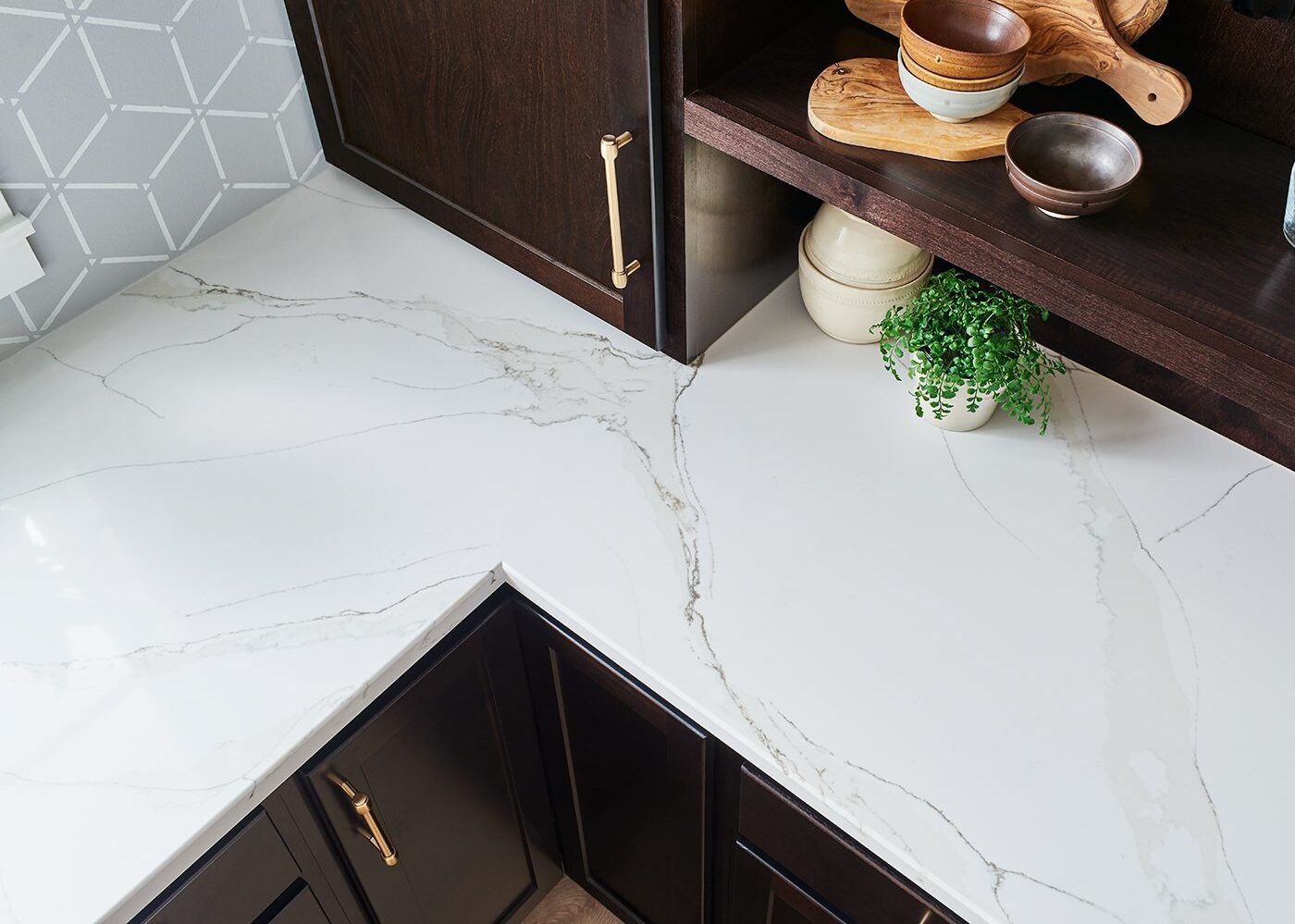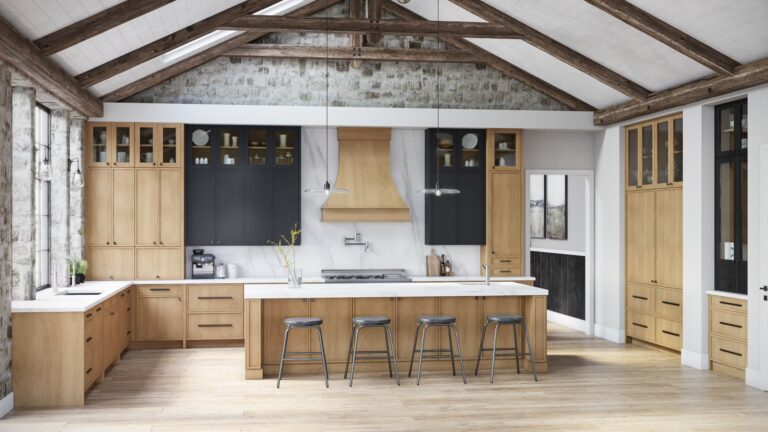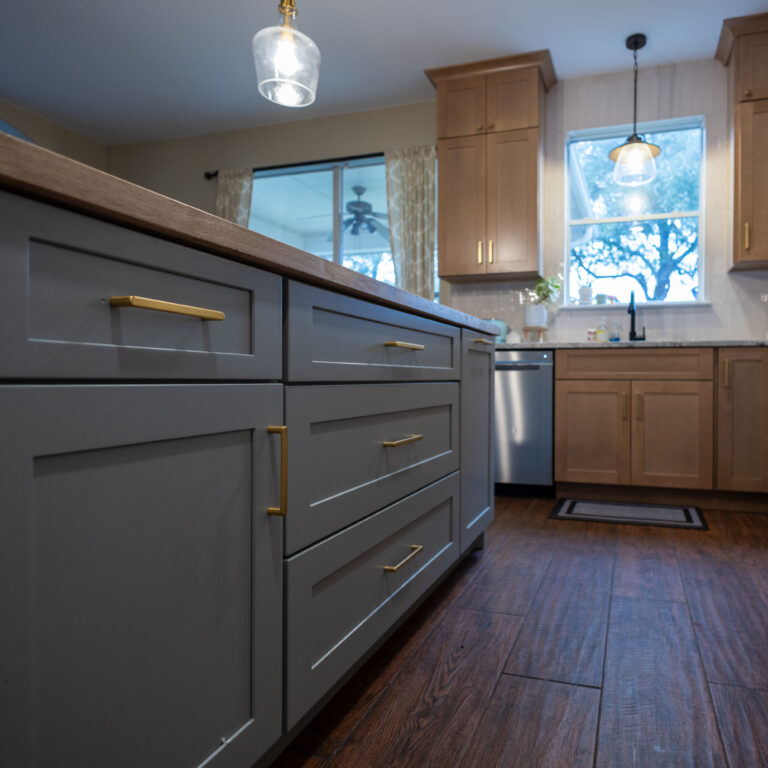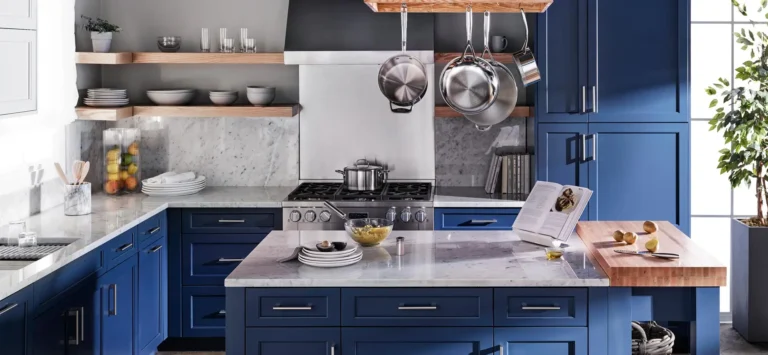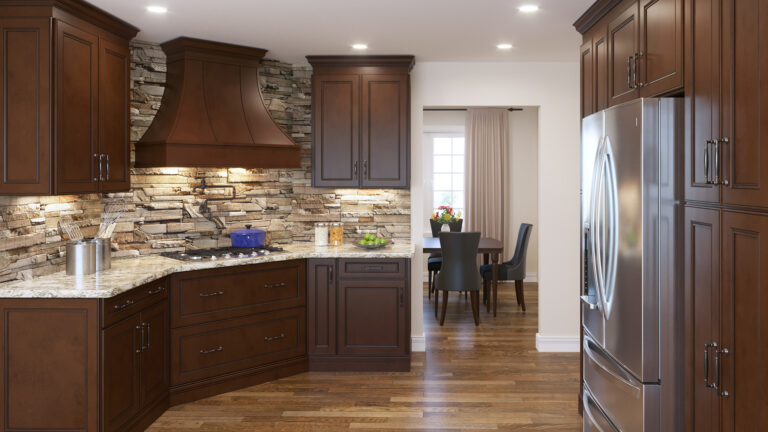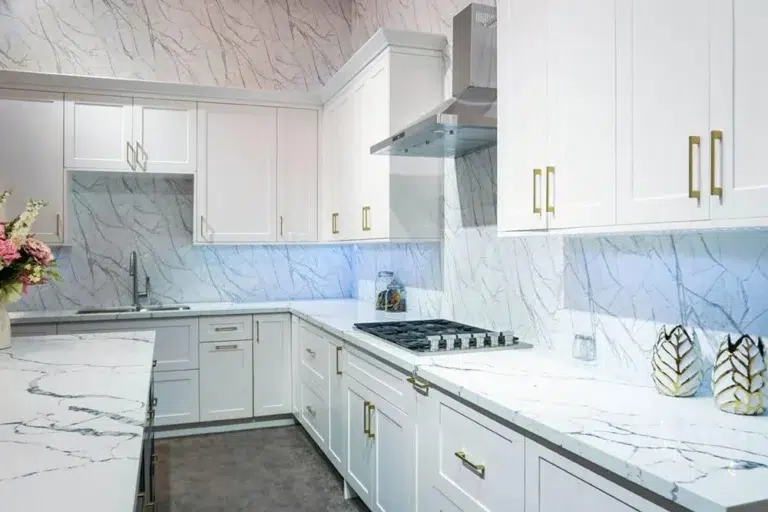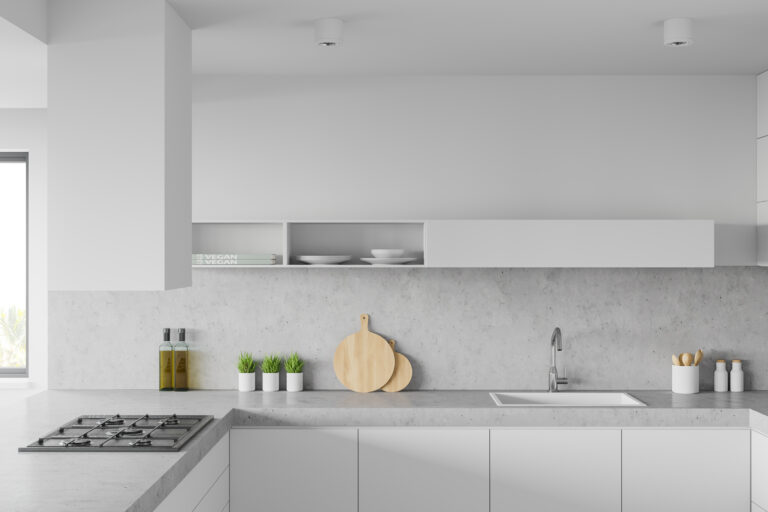When it comes to selecting countertops for your kitchen or bathroom, two popular choices often stand out: granite and quartz. Both materials offer distinct advantages and unique characteristics that can elevate the aesthetics and functionality of your space. To help you make an informed decision, let’s delve into the key differences between granite and quartz countertops:
1. Composition and Appearance
Granite: Granite countertops are natural stone surfaces quarried from the earth. Each slab of granite is unique, featuring its own intricate veining, specks, and patterns that add natural beauty to your kitchen or bathroom. Granite comes in a wide range of colors and textures, from earthy tones to vibrant hues, allowing you to find the perfect match for your design preferences.
Quartz: Quartz countertops, on the other hand, are engineered stone surfaces made from crushed quartz crystals mixed with resin and pigments. This manufacturing process allows for a vast array of colors and patterns that mimic the look of natural stone or offer bold, uniform colors. Quartz countertops often have a consistent appearance throughout the slab, providing a more controlled aesthetic compared to the natural variations of granite.
2. Durability and Maintenance
Granite: Known for its durability, granite is highly resistant to scratches, heat, and stains when properly sealed. It withstands everyday wear and tear well and can last for decades with proper care. However, granite may require periodic resealing to maintain its resistance to stains and moisture.
Quartz: Quartz countertops are engineered to be exceptionally durable and low-maintenance. They are non-porous, making them resistant to stains, bacteria, and moisture without the need for sealing. Quartz countertops are also less susceptible to chips and cracks compared to natural stone, offering peace of mind for busy kitchens or high-traffic areas.
3. Cost
Granite: The cost of granite countertops can vary widely depending on factors such as color, rarity of the stone, and location of the quarry. Generally, granite tends to be more affordable than quartz but may require additional expenses for sealing and maintenance over time.
Quartz: Quartz countertops typically come with a higher initial cost than granite due to their manufacturing process and the availability of customizable colors and patterns. However, they offer long-term savings in maintenance costs since they do not require sealing or special treatments.
4. Aesthetic Versatility
Granite: With its natural variations and unique patterns, granite adds a sense of timeless elegance and warmth to any space. It complements traditional, rustic, and eclectic design styles, offering a natural focal point that enhances the overall aesthetic of your kitchen or bathroom.
Quartz: Quartz countertops provide a more consistent appearance throughout the slab, making them ideal for modern and contemporary settings that emphasize clean lines and uniformity. They offer flexibility in design, allowing you to choose from a wide range of colors and finishes that suit your personal style and interior decor.
5. Environmental Impact
Granite: As a natural stone, granite is mined from quarries, which can have environmental implications depending on mining practices and transportation. However, it is considered a renewable resource since new granite can be quarried as older quarries are depleted.
Quartz: Quartz countertops are considered more environmentally friendly in some aspects because they are engineered using a blend of natural quartz and recycled materials. The manufacturing process also reduces the environmental impact by utilizing leftover stone and minimizing waste.
Conclusion
Choosing between granite and quartz countertops ultimately comes down to your personal preferences, budget, and lifestyle considerations. Whether you prioritize the natural beauty and durability of granite or the consistency and low-maintenance benefits of quartz, both materials offer distinct advantages that can enhance the functionality and aesthetics of your kitchen or bathroom. By understanding these differences, you can make an informed decision that aligns with your vision for creating a beautiful and functional living space.

